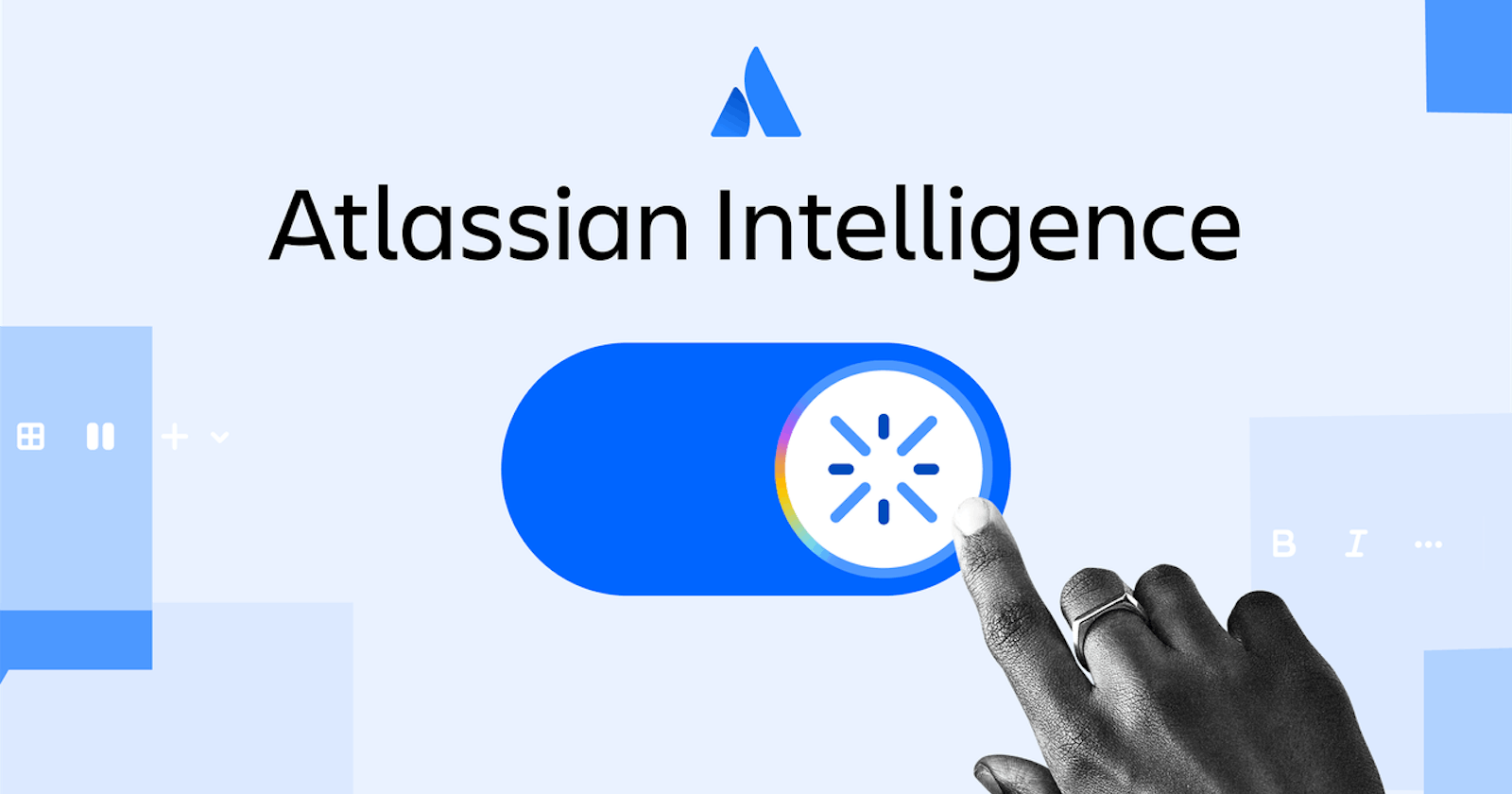History of Atlassian Intelligence
Atlassian's integration of AI into its services stems from a long-standing goal to enhance team productivity. The initiative is based on extensive experience and insights gained over two decades, focusing on how diverse teams work and deliver. Today Atlassian Intelligence is generally available for users.
Adoption since Release
The adoption rate is significant, with a considerable percentage of Atlassian’s large customer base engaging with the AI tools in the beta stage, indicating a strong market interest, figures to facts; Nearly 10% of Atlassian’s 265,000+ customers are already leveraging Atlassian Intelligence through the Early Access program.
Usage
Practical applications include AI summarizing complex reports for efficient comprehension, as utilized by Domino's Pizza, and aiding developers through AI-powered tools in communication platforms, as implemented by Ovo Energy.
Available Features
Let's explore the Available features in three categories
Accelerate individual productivity.
Glean insights from organizational data.
Use AI to drive action
Accelerate individual productivity.

Generative AI
This feature harnesses the power of Generative AI directly within your editing environment. It allows you to perform various tasks seamlessly across different Atlassian products. For instance:
In Jira Software, you can effortlessly generate user stories for your tickets.
In Jira Service Management, you can modify the tone of a customer response, making it more empathetic as needed.
In Confluence, it assists you in generating initial content for a test plan.
Natural Language Automation
This upcoming feature focuses on simplifying automation through natural language commands, primarily in Confluence, with the promise of expanding to Jira Software soon. It means you can instruct the system using plain, human-like language to automate various tasks without the need for complex scripting or coding.
AI Definitions (Beta)
This beta feature aims to clarify and explain specialized terminology, company-specific concepts, or acronyms within Confluence. It helps users understand these terms instantly. Notably, it is in the testing phase in Confluence and is expected to be introduced to Jira Software and Jira Service Management in the near future, enhancing the comprehensibility of your workflow across the Atlassian suite.

AI-powered Summaries
This feature employs Artificial Intelligence to provide you with concise and informative summaries. Here's how it's applied:
In Confluence, it allows you to swiftly gain a comprehensive understanding of any topic by generating summaries.
In Jira Service Management, you can use it to summarize issues efficiently, aiding in the rapid resolution of incidents.
Glean insights from organizational data

Natural Language to JQL
Natural language to JQL (Jira Query Language) represents a significant enhancement in Jira Software and Jira Work Management. It essentially allows users to interact with their project data more intuitively. Here's a breakdown of its significance
Ease of Use: Traditional JQL queries can be complex and intimidating, especially for those who aren't well-versed in it. Natural language input simplifies the process by enabling users to express their queries in everyday language.
Speed and Efficiency: The ability to use natural language for issue tracking and dependency identification accelerates the process of finding critical
information. This is particularly advantageous for complex queries that might have taken longer to construct manually.
Accessibility: By bridging the gap between technical and non-technical team members, this feature empowers everyone to effectively navigate and manage their projects, regardless of their familiarity with JQL. It democratizes access to the data within Jira, making it a valuable asset for teams of all skill levels.
Natural Language to SQL
This feature extends the power of natural language to Atlassian Analytics, making data-driven insights more accessible to a broader range of team members, not just data scientists
Deeper Understanding: When team members can ask questions in plain language, it encourages a more profound exploration of key business metrics. This can lead to valuable insights about project execution trends, customer support efficiency, and team performance.
Collaborative Decision-Making: Accessible data analytics fosters collaboration and informed decision-making. Teams can discuss data-driven insights more effectively, leading to better-informed strategies and actions.
Q&A Search in Confluence (Beta)
Q&A search in Confluence marks a significant step forward in knowledge management and retrieval within the platform. Here's why it's an exciting development.

Actionable Information: While traditional search engines provide results based on keywords, this beta feature takes it a step further by allowing users to ask questions. It goes beyond static information retrieval and enables users to seek out specific, actionable insights about project status, workflows, policies, or processes.
Enhanced Productivity: By facilitating direct interaction with Confluence content through questions, users can quickly find the information they need without sifting through pages of results. This boosts productivity and streamlines decision-making.
Knowledge Validation: When users can ask questions and receive answers, it encourages knowledge validation and ensures that the information stored in Confluence remains relevant and up-to-date. It's a dynamic approach to knowledge management.
Q&A Search in Compass (Beta)
This beta feature in Compass, Atlassian's platform for managing microservices and technology stack information, is designed to simplify the often complex task of information retrieval across different systems and teams. Here's why it's significant.
Efficient Information Retrieval: In the world of microservices and complex technology stacks, finding specific information about components and deployments can be time-consuming. Q&A search in Compass streamlines this process by allowing users to ask natural language questions, eliminating the need for exhaustive manual searches.
Use AI to drive action

In November Atlassian launched, virtual agents within Jira Service Management, which are specialized AI-powered virtual team members capable of handling support requests on Slack. With virtual agents, teams can significantly reduce the workload on human team members while ensuring the quality of service remains high, Virtual agents are designed to expedite the transition from ideas to action, setting a new standard for speed and productivity.
Currently Available Features
Request Type Suggestions: AI now assists Jira Service Management administrators in creating request types through simple prompts. This streamlines the process of setting up service projects for various purposes, such as requesting research participant gift vouchers, initiating health and safety checks in manufacturing processes, or submitting VIP requests to the events team for events like Taylor Swift's global tour.
Upcoming Features
Bitbucket Code Reviewer: Soon, AI will take on the role of reviewing pull request differences and automatically providing comments with suggested changes related to syntax and code conventions. This will free up human reviewers to focus more on assessing critical changes. Additionally, software developers will have the ability to generate pull request descriptions automatically from commit messages, providing valuable context for the proposed changes.
The Future of Atlassian Intelligence
The vision for Atlassian Intelligence includes a suite of specialized AI tools, focusing on reducing mundane tasks and fostering a more creative and collaborative working environment. Enough of reading content, why not explore Atlassian Intelligence for you and your team here?

